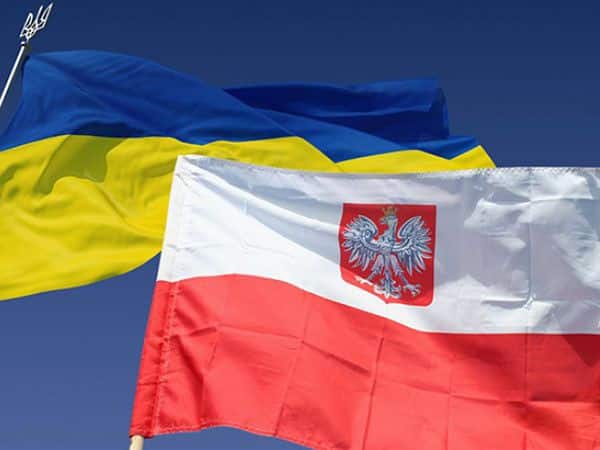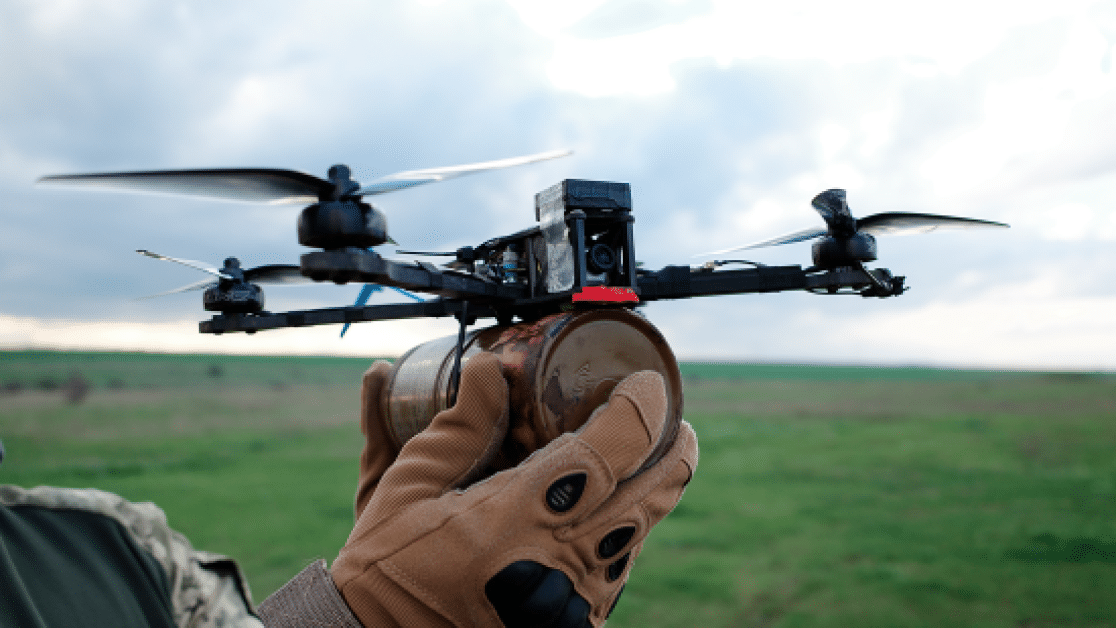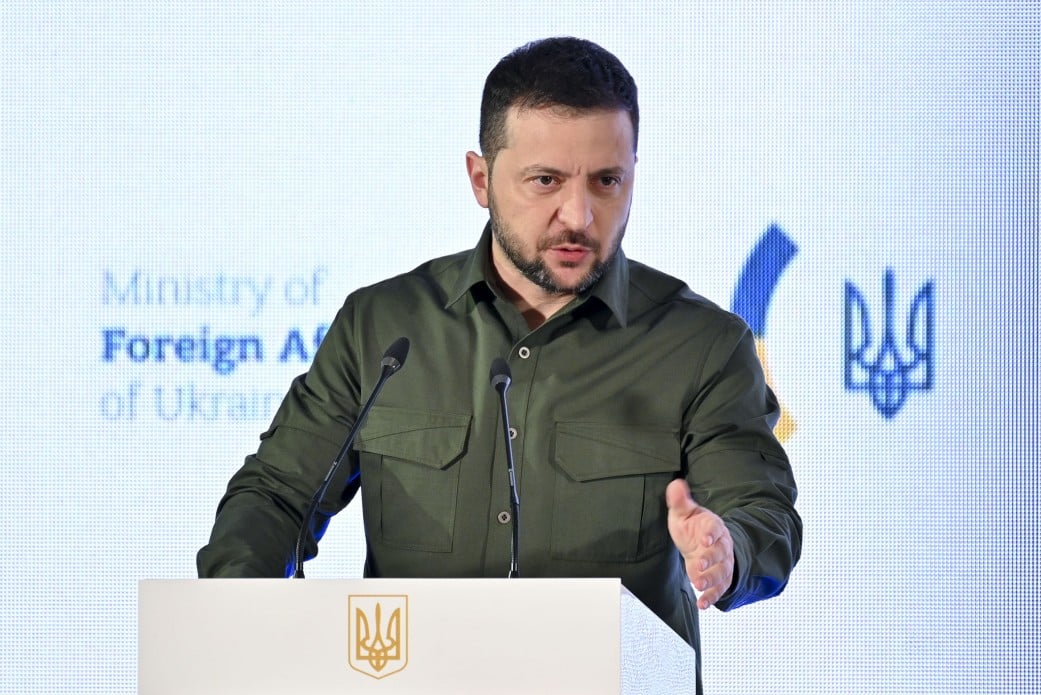Turbulence and corruption scandals in Ukrainian politics
In recent times, corruption-related and corruption-adjacent scandals are increasingly shaking Ukrainian politics. The government’s response to these scandals and the decisions they will make about them are discussed in detail in the material by RBC-Ukraine (media outlet).
The information space in Ukraine consists of two parallel streams of news. The first stream covers news about the war and events surrounding it: developments on the frontlines, arms supplies, sanctions, summits, conferences, and negotiations. The second stream covers news about bribery, questionable tenders, searches, arrests, officials buying luxury properties or cars, and going abroad for vacations, and so on. Since significant media events on the frontlines have been relatively sparse lately, news about bribery, searches, and similar scandals seem to occupy even more space than the actual war itself.
In recent days, the controversial tenders for producing TV series by the Ukrainian State Film Agency became the latest argument in favor of dismissing the relevant minister, Oleksandr Tkachenko. Questions regarding Tkachenko had been accumulating for a long time, and for quite a few years, insiders at RBC-Ukraine on Bankova Street had named him as one of the first candidates to be removed from the government. Against the backdrop of an unimpressive telethon, which was overseen by the minister himself, and the latest scandals involving the Ministry of Culture, patience at the Office of the President had evidently run out.
Last week, there was an incident with the vacation of Yuri Aristov, a deputy from the Servant of the People party, who went to the Maldives. The case of Borisov, the commander of the Odesa military unit, also developed further — both he and his property were arrested.
Not too long ago, there were other similar scandals — Servant of the People deputy Lyudmila Marchenko was caught in a bribery case and became infamous for throwing money over the fence of her house. Her fellow party member and monobloc colleague, Bohdan Torokhtiy, together with his wife, bought three expensive cars during the full-scale war and went on vacation to Bulgaria, where his wife also acquired real estate.
“Nowadays, the people have divided into those who are fighting and actively supporting the army, those in the rear who are simply trying to make ends meet in a state of constant alarm, and those who live as if nothing is happening, taking bribes, acquiring property, and so on,” says one of the government representatives in a conversation with RBC-Ukraine.
On the other hand, another person recommends talking to developers and sellers of luxury cars — they will tell you how the demand for luxury housing and vehicles from financially capable individuals has increased recently. In the current circumstances, the corrupt layer (apparently taking advantage of the lack of proper declaration) considers these as the most reliable ways of capital investment.
It is impossible to accurately assess the overall scale of corruption in Ukraine. It is likely that in absolute numbers, it may even be smaller than before the full-scale war, but only because the overall size of the economy has significantly decreased. What particularly angers people is that these thefts are happening during the war when individuals are contributing small amounts of money to support the “mavik” (quadcopter) and yet witnessing reports of foreign real estate and luxury car fleets owned by regional military commanders. For many ordinary Ukrainians, their Facebook feeds have become a martyrdom register: another relative, friend, classmate, colleague, or friend of a friend has died on the frontline. What adds to their frustration is that alongside these tragic announcements, they come across links to new corruption scandals.
Currently, according to one of the sources within the government, Ukraine has found itself in a zone of extreme turbulence, essentially a perfect storm. The counteroffensive is developing slower than almost everyone expected (though major battles are still ahead, thankfully recognized by the West). Recent major diplomatic victories are also lacking, and after Russian shelling of port infrastructure and the rupture of the grain agreement, economic prospects have become even more uncertain. All of this is compounded by an endless stream of corruption scandals.
“Essentially, the only thing the authorities can influence at the moment is domestic policy. The situation on the frontline obviously depends not only on our actions, as Western countries may withhold certain conditional ATACMS missiles regardless of our efforts. Concerning the economy, if we shell Russians in Odesa and its surroundings, we will face serious problems immediately. However, in domestic policy, there are things that depend solely on our will,” explains the source to RBС-Ukraine.
In light of recent scandals on Bankova Street (the Ukrainian presidential administration location), several decisions have been made, for example, not allowing deputies and other officials to travel abroad. Previous attempts to tighten exit regulations, as demonstrated by examples like Torokhtiy and Aristov, have been successfully bypassed. It is evident that imposing a complete and absolute ban on travel for all officials and deputies until the end of the war is not necessary. Such a measure would indeed be counterproductive, given the importance of parliamentary diplomacy. Nevertheless, the circumstances of their trips will now be much more strictly controlled to prevent situations like “I went to a summit in Vilnius and ended up at a resort in the Maldives.”
In addition, according to sources, a decision was made to review the previous trips of parliamentary deputies, and those who feel guilty or have certain suspicions were already quite nervous last week.
Evidently, there will be quite a lot of news regarding corruption in military units.
“Borisov is one of the cases, and military commanders have been ‘cooking’ these cases even before the situation regarding the Odesa military unit came out in the media. Although the scale of the problem is quite significant, as recently mentioned by the President. Remember President Zelenskyy’s demand to send military commanders from the rear to the frontline. Has anyone checked if it was executed? It was not. And why? That’s a question for the General Staff,” mentioned one of the heads of law enforcement agencies in a conversation with the publication.
Impact of Western approaches on funding
The turbulence in Ukraine coincided with a change in the Western approach to providing Ukraine with funds. Currently, it increasingly depends on the Ukrainian government fulfilling certain conditions. Simply giving money to Ukraine for being on the frontline of the struggle for Western civilization against Russian aggression is no longer desired by anyone.
“We have gone back to the times of Petro Oleksiyovych when the ‘money in exchange for reforms’ program was in place,” says a source in President Zelenskyy’s circle in a conversation with RBC-Ukraine.
The Ukrainian government is being explicitly told that if it delays meeting the demands, they should not expect anything positive. Thanks to this pressure, the Verkhovna Rada of Ukraine was finally able to pass the bill on the resumption of electronic declaration in the first reading.
Considering everything, the situation will remain unchanged at least until the beginning of the heating season — turbulent, without significant failures, but without notable victories either. We will increasingly hear about corruption cases, searches, arrests, and scandals related to how the Ukrainian elite acquired their wealth from dubious sources. At least, according to rumors, this impulse comes directly from President Zelenskyy, who becomes increasingly disappointed with both the parliamentary corps and most officials with each passing month.
However, there is a significant problem. In football, a player committing a serious offense may initially receive only a yellow card, and he is only expelled from the field upon repeating a similar offense. Judging from the sentiments in society, there is no more time for issuing warnings in the government — wrongdoers must be punished immediately. The issue is that these punishments have been, are, and evidently will continue to be selective.
Originally posted by Milan Lelich on RBC-Ukraine. Translated and edited by the UaPosition – Ukrainian news and analytics website




